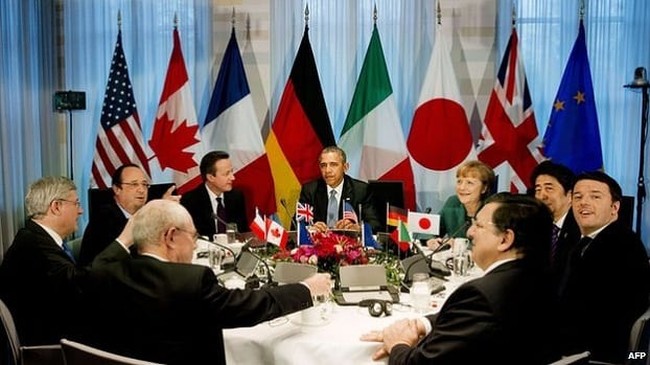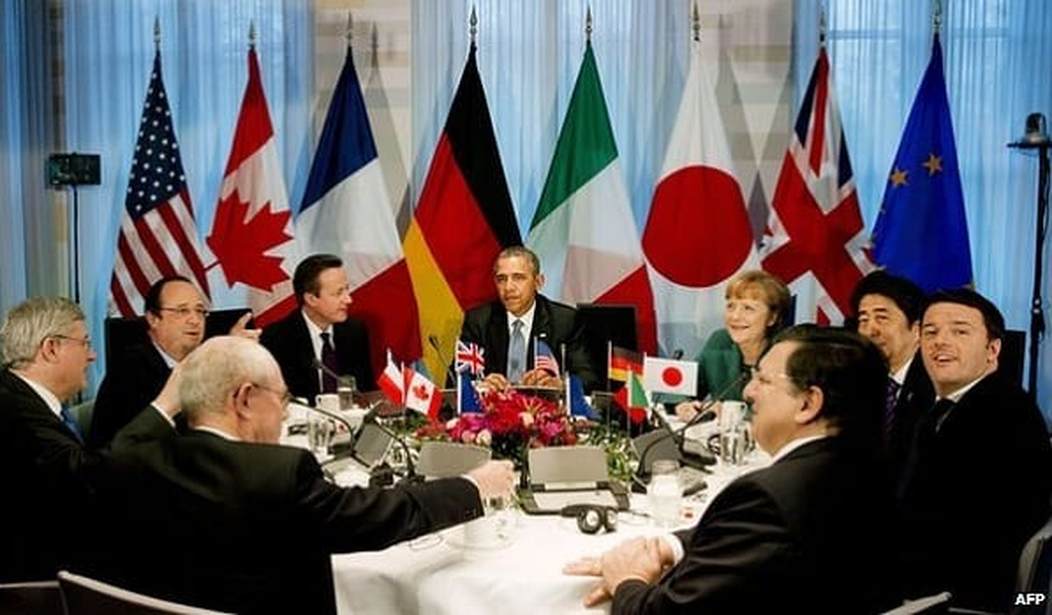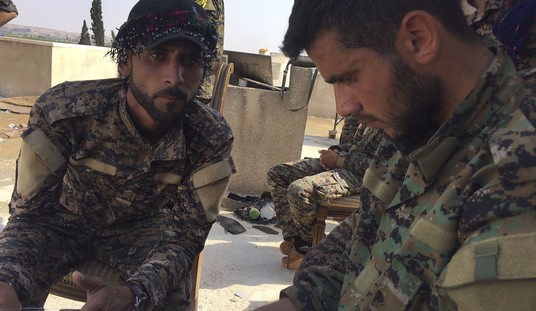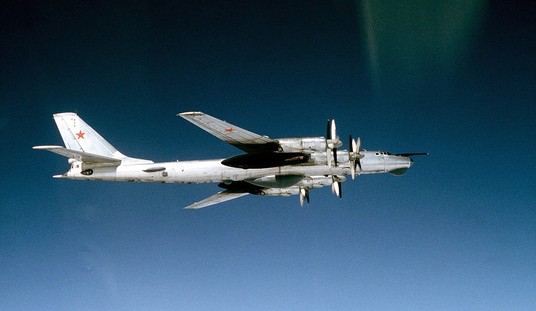
Yesterday, the West took a small step towards recognizing Russia for what it is: a rogue state that will operate outside international norms to aggrandize power and territory to itself. The G8 officially suspended Russia from membership because of its ravaging of Ukraine and the annexation of Crimea.
“International law prohibits the acquisition of part or all of another state’s territory through coercion or force,” the statement said. “To do so violates the principles upon which the international system is built. We condemn the illegal referendum held in Crimea in violation of Ukraine’s constitution.
“We also strongly condemn Russia’s illegal attempt to annex Crimea in contravention of international law and specific international obligations.”
This step is necessary but not sufficient. Suspension from the G8 is not expulsion. The inclusion of Russia in the G8 had nothing to do with Russia’s importance in the areas of concern to the G8 but was driven by Russia’s propensity to make trouble for the rest of the world in those areas. Russia is, as former German Chancellor Helmut Schmidt said, little more than Upper Volta with missiles. The thought seems to have been it was better to have them in the tent peeing out than outside the tent peeing in. What it did was feed give Vladimir Putin a participation trophy and boosted his already substantial self-esteem.
This kind of half measure will only encourage Putin into thinking he can take what he wants with impunity.
Russia’s bad behavior has come under a spotlight. Where he had contented himself with imprisoning his rivals and critics and robbing the country blind, he is now an obvious threat to the current international order. Ross Douthat writing in the NY Times over the weekend calls the idea that Russia can be a cooperative member of the international community an illusion:
Now both ideas should be abandoned. After Crimea, as Anne Applebaum wrote last week, it’s clear that Putin’s Russia “is not a flawed Western power,” but “an anti-Western power with a different, darker vision of global politics.” It may not be America’s No. 1 geopolitical problem, as a certain former candidate for president suggested. (Don’t sleep on the Chinese.) But it is a geopolitical threat — a revisionist, norm-violating power — to a greater extent than any recent administration has been eager to accept.
Inside of NATO, more and more politicians are seeing Crimea as the equivalent of the German remilitarization of the Rhineland. One of the more influential thinkers in NATO and European strategic circles, Dr. Julian Lindley French, advocates taking a very hard line with Russia. In his blog post titled NATO-Russia and the New Cold Peace he assesses the situation:
First, the West must escalate not de-escalate. Therefore, the desire to rationalise away what President Putin has done must be pushed away. This is a strategic power struggle between Russia and the West about influence along the entirety of Moscow’s western and southern borders. As such Russia’s action has potentially the most profound of consequences for Europe and beyond.
Second, the invasion of Crimea should not be seen as an event but rather part of Russian strategy. At the meeting one of my colleagues said that Russia will pay a high financial price to maintain Crimea. Moscow could not give a jot. Russia’s invasion is about history and strategy. As such Putin’s masterstroke has been to destabilise every former Soviet republic with one act. He has also reinvigorated Russia’s sphere of influence and greatly damaged the strategic credibility of the West of which NATO is a central pillar. He has also ended any pretence to further EU and NATO enlargement and with it the idea of a Europe whole and free.
Third, President Putin has also come out of the power closet with a bang and in so doing redefined the meaning of ‘legitimacy’ in Russia. Any hope that Russia would at some point morph into a liberal European style parliamentary democracy is now gone. Russia is now a fully-blown aggressive revisionist power on Europe’s border with a classically Russian strong man at the helm who is wrapping himself in the Russian flag to justify power and position. That might not work for more urbane Muscovites but it goes down a hoot in much of rural Russia.
Professor Lindley French offers a series of actions needed to prevent the situation from spiraling out of control.
- NATO leaders must move quickly to place military forces in the Baltic States. This will reassure them and assure their security under Article 5 of the Treaty of Washington.
- A Western military tripwire must be established along NATO’s border with Russia to complicate Moscow’s regional-strategic calculation.
- The US must quickly bring back two additional Brigade Combat Teams to Europe to reinforce the existing force.
- Exercises must begin for the rapid reinforcement of NATO forces in Eastern Europe in the event of a crisis as part of a new Forward Deployment strategy.
- NATO must end its reluctance to base Allied forces in Eastern Europe out of fear it might be seen by Moscow as provocative. Russia is the provocateur.
- The NATO-Russia Council must be suspended;
- The modernisation of Article 5 collective defence must now be urgently reconsidered to include cyber and missile defence.
The thing to keep in mind is that any decision we make, or don’t make, carries risk either today or some years from now when Russia is much stronger than it is today.
We’ve seen, conclusively, that Putin has strategic goals that put him at odds with the West. Our decision is whether to acquiesce to his desires or stand up for our rights. After all, Vladimir Putin’s inconvenience is really not more important than our inconvenience and nothing we do can provoke a peaceful nation. The fear of something serving as a provocation is based in the knowledge that Putin is an avaricious man who will use violence to take what he wants.
The decision to suspend Russia from the G8 is a pallid, flaccid first step. But at least it is something. To remove the strategic initiative from Russia, though, stronger actions must be taken.













Join the conversation as a VIP Member